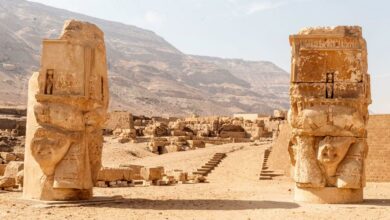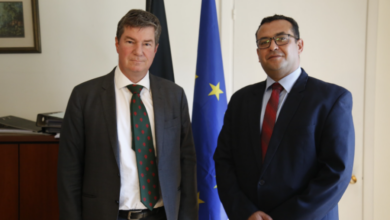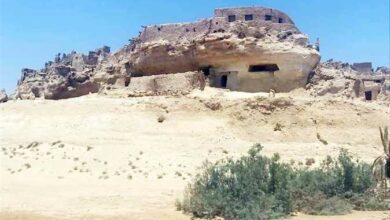Chronicling the hardships of Egypt’s small farmers, Egyptian-German filmmaker and writer Philip Rizk will screen his new documentary Thursday night ahead of World Environment Day in June.
This year’s World Environment theme, “Our Land, Our Future,” aims to raise awareness about pressing issues of food security and land use in Egypt, a country hardly able to feed is fast-growing population.
His documentary “Dowla Tathir al-Shafqa,” or “A Pitiful State,” tackles the issue of food insecurity, a problem Rizk blames on government mismanagement. The film will be screened on Thursday at 7 pm at the Opera House’s creativity center, and will be followed by a panel discussion.
For his documentary, Rizk interviewed experts and farmers in the Delta village of Qalyubiya, close to the city of Mansoura.
“Small farmers in Egypt have trouble getting permits for their homes [while] large companies try to occupy or have access to their lands,” Rizk says, adding they “receive very few services. Sometimes, running water doesn’t reach certain villages.”
Rizk first became interested in the plight of farmers when he was living in Palestine and began working on a documentary about the way Palestinian farmers resist Israeli occupation.
“In Palestine, many arable lands are occupied by Israel and converted into industrial farming lands,” he explains, adding that although Egyptian farmers do not face pressure from an occupying force, they too are under siege.
While he was researching Egypt’s agricultural policies over the past 50 years, Rizk learned about a 1970s Ministry of Agriculture decision to subsidize large farms that he says is largely responsible for today’s farming problems.
The government gave “a lot of money to large farms, which produced food for export in huge quantities,” he says. The idea was “to get a large income that would be reinvested in the country and make Egypt’s GDP strong and attractive to foreign direct investment.”
The consequence of this policy is that most of the food produced and subsidized in Egypt today is not intended for domestic consumption, and that makes the country extremely vulnerable to price fluctuations on the international market.
“Big farmers producing potatoes received subsidies like US$100 a ton when they exported their merchandise, on top of the money they were already making,” he says.
Without the advantage of subsidies, small farmers are often unable to purchase fertilizers.
Global export markets have also encouraged farmers to replace traditional crops like cucumbers and tomatoes with non-traditional crops, such as peanuts, which can be exported at greater profit.
“Farmers, instead of consuming their various crops and selling the leftovers, are exporting one type of crop and are unable to feed themselves,” says Rizk.
Rizk concedes that before the revolution, the Egyptian government set aside a special budget to help guard against food price fluctuations, but the money was insufficient.
“I am sure that the increase of food prices played a very important role in the 25 January revolution, although the food security issue was not talked about much,” he says.




